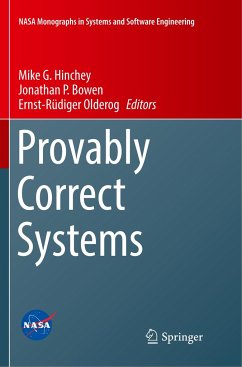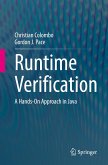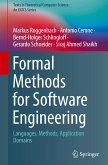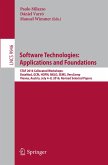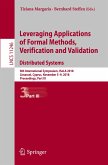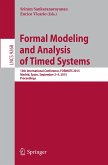As computers increasingly control the systems and services we depend upon within our daily lives like transport, communications, and the media, ensuring these systems function correctly is of utmost importance. This book consists of twelve chapters and one historical account that were presented at a workshop in London in 2015, marking the 25th anniversary of the European ESPRIT Basic Research project 'ProCoS' (Provably Correct Systems).
The ProCoS I and II projects pioneered and accelerated the automation of verification techniques, resulting in a wide range of applications within many trades and sectors such as aerospace, electronics, communications, and retail.
The following topics are covered:
An historical account of the ProCoS projectHybrid SystemsCorrectness of Concurrent AlgorithmsInterfaces and LinkingAutomatic VerificationRun-time Assertions CheckingFormal and Semi-Formal Methods
Provably Correct Systems provides researchers, designers and engineers with a complete overview of the ProCoS initiative, past and present, and explores current developments and perspectives within the field.
The ProCoS I and II projects pioneered and accelerated the automation of verification techniques, resulting in a wide range of applications within many trades and sectors such as aerospace, electronics, communications, and retail.
The following topics are covered:
An historical account of the ProCoS projectHybrid SystemsCorrectness of Concurrent AlgorithmsInterfaces and LinkingAutomatic VerificationRun-time Assertions CheckingFormal and Semi-Formal Methods
Provably Correct Systems provides researchers, designers and engineers with a complete overview of the ProCoS initiative, past and present, and explores current developments and perspectives within the field.

